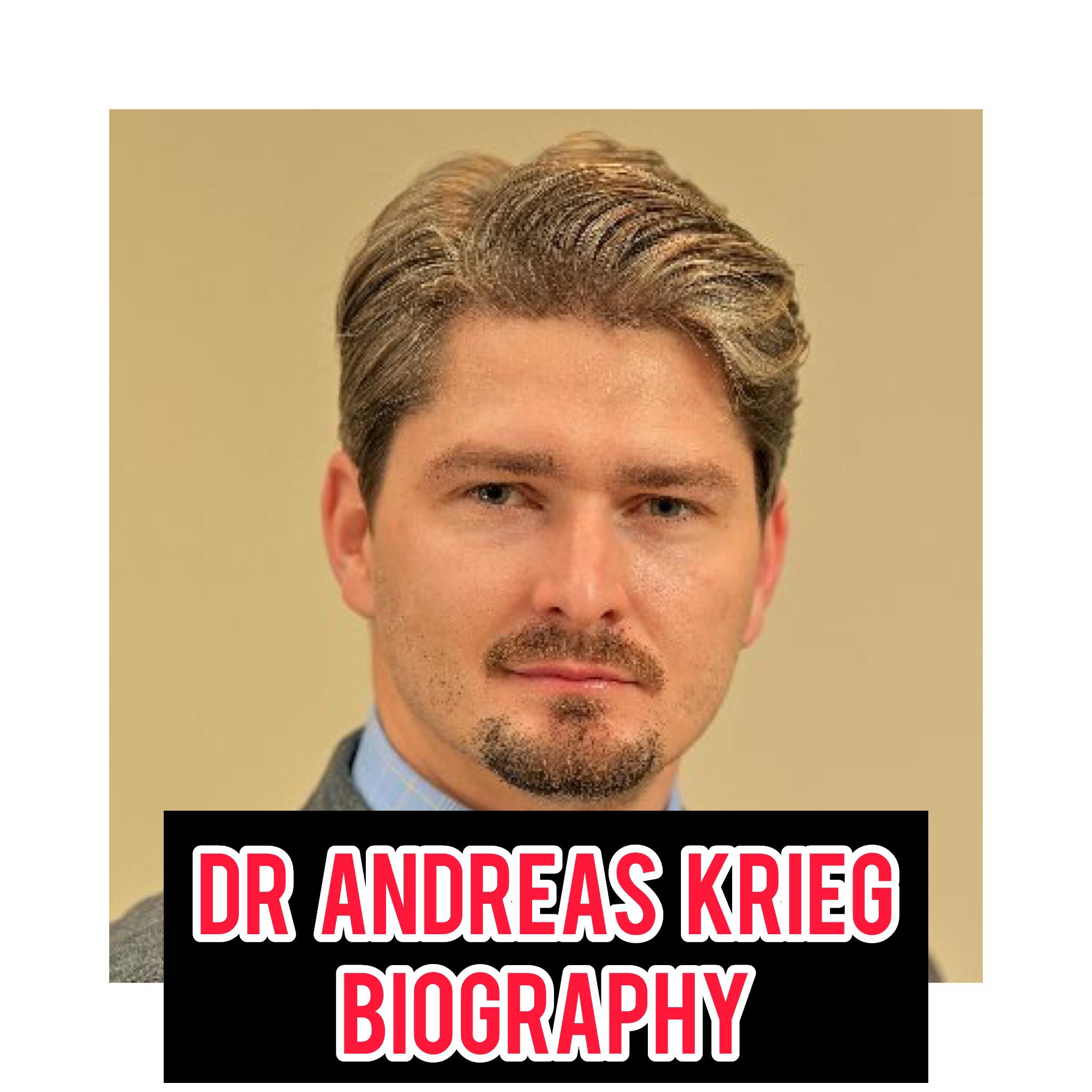
Dr Andreas Krieg Biography Wikipedia
Dr. Andreas Krieg stands as a distinguished figure in the field of Security Studies, renowned for his comprehensive expertise in the Middle East and North Africa (MENA) region. His academic journey, extensive research, and practical engagements have shaped a profound understanding of the intricate dynamics of security, statehood, and non-state actors in the complex sociopolitical landscape of the MENA region.
Dr Andreas Krieg Early Life And Education
Born with an innate curiosity and a passion for understanding global security paradigms, Dr. Andreas Krieg embarked on an academic journey that would eventually lead him to become a leading authority in Security Studies. His formative years laid the foundation for his academic curiosity, and he pursued higher education with an ardent focus on understanding the geopolitical complexities of the MENA region.
Having spent more than a decade immersing himself in the Levant – encompassing Lebanon, Syria, Israel, and Palestine – Dr. Andreas Krieg developed a nuanced understanding of the intricate sociopolitical fabric, cultural nuances, and regional dynamics that define the MENA region. Dr. Andreas Krieg firsthand experiences living and working across diverse contexts within the region cultivated a unique perspective that would become instrumental in his academic pursuits.
Dr Andreas Krieg Career
Dr. Andreas Krieg’s academic career flourished as a Senior Lecturer at the School of Security Studies at King’s College London and as a fellow at the Institute of Middle Eastern Studies. Dr. Andreas Krieg research endeavors encompass a wide array of critical subjects within the domain of Security Studies, predominantly centered on the MENA region.
Dr. Andreas Krieg delved deeply into understanding violent non-state actors in the MENA region, scrutinizing their roles and dynamics in challenging state authority while examining communal resilience. His scholarly inquiries extended to the intricate interplay between state and non-state actors, notably in North Africa and the Levant, focusing on surrogate warfare and its implications.
Furthermore, Dr. Andreas Krieg’s extensive research has explored the nexus between security provision and socio-politics, offering insightful analyses of the Arab Spring and its impact on regional security dynamics. Notably, his research on the Gulf Divide served as the catalyst for his groundbreaking project on the internal and external weaponization of narratives in the Middle East. This project sheds light on the distortion of civil-societal discourse within the region, challenging prevailing academic debates about its trajectory.
Beyond academia, Dr. Andreas Krieg’s impact extended to practical engagements within the MENA region. His pivotal role in delivering a strategic contract between the State of Qatar, the UK Ministry of Defence, and King’s College London exemplifies his ability to bridge academic expertise with real-world strategic partnerships.
Dr. Andreas Krieg engagements have enabled a deep understanding of the intersection between academic theories and practical applications in security studies, fostering valuable collaborations and facilitating the exchange of knowledge and insights across various stakeholders.
Dr. Andreas Krieg’s legacy as a scholar, lecturer, and practitioner in Security Studies is marked by his commitment to illuminating the multifaceted nature of security challenges in the MENA region. Dr. Andreas Krieg scholarly contributions have not only enriched academic discourse but have also offered pragmatic insights that inform policymaking and strategic considerations in global security.
Dr. Andreas Krieg’s dedication to unraveling the complexities of security in the MENA region continues to pave the way for a more comprehensive understanding of the geopolitical landscape, influencing academic scholarship and shaping strategic perspectives on regional security challenges and their global implications.

Sage is a financial/consumer journalist and senior editor, personal finance, of TrendsHQ. EXPERTISE: Personal Finance, Careers, Jobs, Scholarships, and Entertainment.
